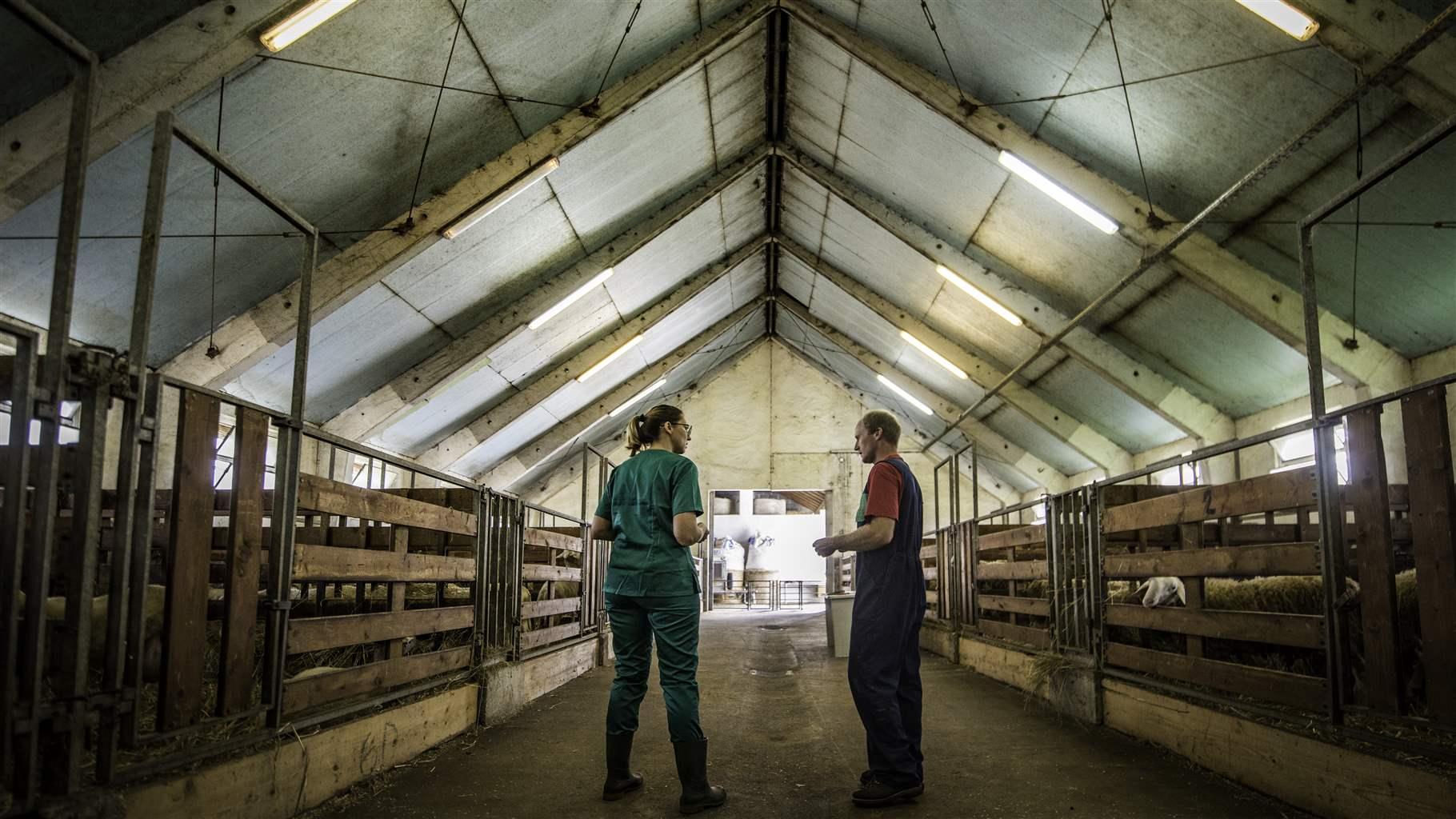FDA Will Require Veterinary Oversight for All Animal Antibiotics Important to Human Medicine
Recently approved guidance says such antibiotics will not be available over the counter as of mid-2023

Editor's Note: This analysis was updated on July 13, 2021, to more accurately reflect the entities affected by FDA’s revised guidance. It was updated on July 22, 2021, to clarify FDA requirements for veterinary prescriptions prior to GFI #263.
The U.S. Food and Drug Administration’s Center for Veterinary Medicine on June 10 finalized guidance for the agricultural industry that will bring all medically important antibiotics used in food-producing animals under veterinary oversight. Known as Guidance for Industry #263 (GFI #263), the new policy closes an important loophole that allowed producers to purchase over-the counter animal antibiotics without a prescription and promotes more judicious use of these drugs.
Previously, a veterinary prescription was required only for some injectable products as well as for antibiotics used in feed and water; GFI #263 extends this requirement to cover all drugs administered through any route. By requiring veterinary oversight over all medically important antibiotics, the agency takes a critical step in strengthening antibiotic stewardship and protecting public health against the growing threat of antibiotic resistance.
Strong public support for the new policy—which will be fully implemented in June 2023— demonstrates continued interest in FDA efforts to combat the emergence of superbugs. When the draft version of GFI #263 was published in 2019, the agency received more than 5,000 positive comments from people urging swift finalization and implementation of the requirement. Because antibiotics become less effective the more they are used, public backing for expanded veterinary oversight helps ensure that these lifesaving drugs are used judiciously in every setting.
In finalizing GFI #263, FDA has accomplished a key objective in its five-year plan for promoting antibiotic stewardship in veterinary settings. Other elements of the plan remain to be implemented, including steps to address the urgent need to establish fixed, evidence-based duration limits for all medically important antibiotics and to improve the collection of data on antibiotic use and resistance. Such actions would represent an important step toward promoting more judicious use of antibiotics in animal agriculture.
David Hyun, M.D., is the director of and Helene Sherburne is an associate with The Pew Charitable Trusts’ antibiotic resistance project.












